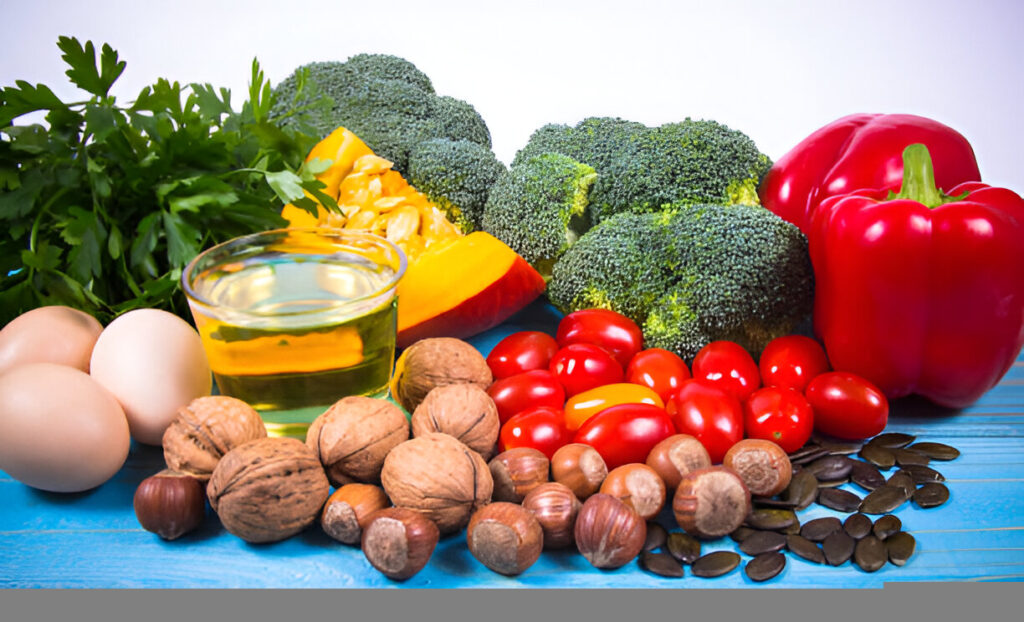Maintaining healthy veins is essential for proper blood circulation and overall cardiovascular health. Veins transport deoxygenated blood back to the heart, and when they are compromised due to age, genetics, or lifestyle, issues such as varicose veins, chronic venous insufficiency, or deep vein thrombosis can arise. One of the most natural and effective ways to support vein health is through diet. Here are several foods known for their vein-supportive properties. One of the most natural and effective ways to support vein health is through diet. Here are several foods known for their vein-supportive properties. While dietary choices play a major role, consulting a vein doctor can help assess your specific risk factors and provide personalized guidance. A vein specialist can identify early signs of vein disease and recommend treatments or lifestyle changes to support long-term vascular health. Combining expert care with proper nutrition can significantly enhance circulation and vein function.
1. Citrus Fruits
Citrus fruits like oranges, lemons, limes, and grapefruits are packed with vitamin C, a powerful antioxidant that supports collagen and elastin production. These two proteins are crucial for maintaining the strength and elasticity of vein walls. Vitamin C also helps prevent inflammation and improves overall blood circulation, reducing the risk of varicose veins and other venous conditions.
2. Berries
Berries—especially blueberries, strawberries, and blackberries—are rich in flavonoids and anthocyanins, which strengthen blood vessels and reduce oxidative stress. These compounds help tone the walls of the veins and improve circulation, thereby reducing swelling and discomfort in the legs. Regular consumption of berries can also reduce the likelihood of blood clots.
3. Leafy Greens
Leafy green vegetables such as spinach, kale, and Swiss chard are high in magnesium and nitrates. Magnesium helps maintain healthy blood pressure, while nitrates are converted into nitric oxide in the body, a compound that relaxes and dilates blood vessels. This improves circulation and reduces strain on the veins.
4. Beets
Beets are another nitrate-rich food that supports vein health. In addition to improving blood flow, beets contain betaine, which reduces homocysteine levels in the blood—a factor linked to cardiovascular and venous issues. Drinking beet juice or adding beets to salads can be a simple way to boost vein strength.
5. Avocados
Avocados are full of healthy fats, potassium, and vitamins C and E. Vitamin E helps prevent blood clots and supports the integrity of blood vessels, while potassium helps reduce water retention and leg swelling. The monounsaturated fats in avocados also improve cardiovascular health, supporting better blood flow and vein function.
6. Nuts and Seeds
Almonds, walnuts, flaxseeds, and chia seeds are excellent sources of omega-3 fatty acids, fiber, and vitamin E. These nutrients help lower inflammation, reduce cholesterol levels, and support vein elasticity. A handful of nuts or seeds daily can provide long-term vein health benefits.
7. Garlic and Onions
Garlic and onions are rich in sulfur compounds and flavonoids like quercetin, which have anti-inflammatory and blood-thinning properties. These compounds help improve circulation, reduce vein swelling, and prevent the formation of blood clots.
Final Thoughts
Incorporating these foods into your daily diet can contribute significantly to the health of your veins. While a balanced diet is vital, it should be complemented with regular exercise, adequate hydration, and avoidance of prolonged sitting or standing. If you have concerns about your vein health, consult a healthcare provider like NYC Vein Docs for personalized advice. A few mindful dietary choices today can lead to stronger, healthier veins for years.


